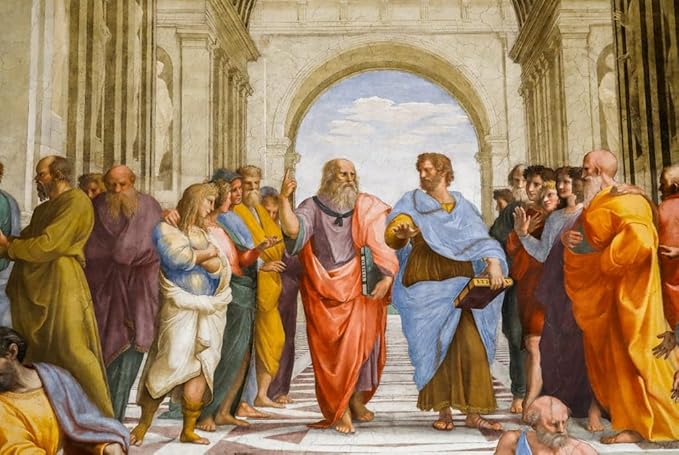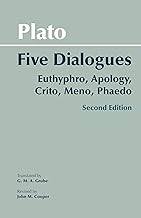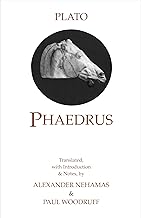
How to Read Plato's Books on Philosophy
How to Read Plato's Books on Philosophy
Estimated Reading Time: 4-6 minutes
Introduction
Plato, one of the most influential philosophers in Western thought, was born around 427 BCE in Athens, Greece. A student of Socrates and a teacher of Aristotle, his works laid the foundation for much of Western philosophy, particularly in ethics, politics, and metaphysics. Plato's unique approach to philosophy—characterized by dialogues that explore profound questions through conversation—offers readers a rich tapestry of ideas that remain relevant today.
His works emerged during a tumultuous period in Athenian history, marked by political upheaval and the aftermath of the Peloponnesian War. This context shaped his philosophical inquiries, particularly concerning justice, the ideal state, and the nature of knowledge. Plato's dialogues invite readers to engage with complex ideas in a way that feels both immediate and timeless, making his perspective on philosophy not just valuable but essential for anyone seeking to understand the human condition.
Why Plato's Perspective Matters
Plato's approach to philosophy is distinctive for several reasons. First, he emphasizes the importance of dialogue as a method for exploring philosophical questions. This Socratic method encourages critical thinking and self-examination, allowing readers to engage actively with the material. Second, his theory of Forms posits that beyond the physical world lies a realm of ideal forms, which shapes our understanding of reality and knowledge.
Plato's exploration of ethics, politics, and love has had a lasting impact on philosophy, influencing countless thinkers throughout history. His ideas challenge us to consider the nature of justice, the role of the philosopher in society, and the pursuit of truth. By grappling with these themes, readers can gain insights that resonate deeply in contemporary discussions about morality, governance, and personal fulfillment.
Overview of Recommended Books
The Republic
Main Themes and Arguments: In "The Republic," Plato explores the nature of justice and the ideal state. Through a dialogue primarily between Socrates and various interlocutors, he examines what constitutes a just society and the role of the philosopher-king. Central to this work is the allegory of the cave, which illustrates the difference between the world of appearances and the world of forms.
Historical Context and Significance: Written around 380 BCE, "The Republic" reflects Plato’s response to the political instability of his time. His vision of an ideal state governed by philosopher-kings was both a critique of Athenian democracy and a proposal for a more enlightened form of governance.
Key Insights and Takeaways:
- Justice as a Virtue: Plato argues that justice is a fundamental virtue that benefits both individuals and society.
- The Allegory of the Cave: This metaphor highlights the importance of education and the philosopher's role in guiding others toward enlightenment.
- The Tripartite Soul: Plato’s model of the soul—comprising reason, spirit, and appetite—offers insights into human motivation and ethical behavior.
- Philosopher-Kings: The idea that the most knowledgeable should govern challenges contemporary views on leadership and expertise.
Why Read This Book: "The Republic" is essential for understanding the foundations of political philosophy and ethics. It is particularly valuable for those interested in governance, justice, and the moral responsibilities of leaders.
The Apology
Main Themes and Arguments: In "The Apology," Plato presents Socrates’ defense during his trial for impiety and corrupting the youth of Athens. Through Socratic dialogue, Socrates articulates his philosophy of life, emphasizing the importance of questioning and seeking truth.
Historical Context and Significance: Written shortly after Socrates' death in 399 BCE, "The Apology" serves as both a historical account and a philosophical treatise. It reflects the tensions between individual conscience and societal norms, a theme that resonates throughout history.
Key Insights and Takeaways:
- The Unexamined Life: Socrates famously asserts that "the unexamined life is not worth living," urging readers to engage in self-reflection.
- The Role of the Philosopher: Socrates positions himself as a gadfly, challenging complacency and encouraging critical thought.
- Integrity in the Face of Adversity: Socrates’ commitment to his principles, even in the face of death, serves as a powerful example of moral courage.
- Knowledge and Ignorance: The distinction between true knowledge and mere opinion is central to Socratic philosophy.
Why Read This Book: "The Apology" is crucial for anyone interested in ethics, the nature of knowledge, and the role of the individual in society. It offers profound insights into the importance of integrity and the pursuit of truth.
Phaedrus
Main Themes and Arguments: In "Phaedrus," Plato explores the nature of love and rhetoric through a dialogue between Socrates and Phaedrus. The text delves into the relationship between love and the pursuit of truth, as well as the art of persuasion.
Historical Context and Significance: Written around 370 BCE, "Phaedrus" reflects the cultural and intellectual climate of Athens, where rhetoric played a significant role in public life. Plato’s exploration of love as a motivating force for philosophical inquiry is both innovative and timeless.
Key Insights and Takeaways:
- Love as a Form of Madness: Plato presents love as a divine madness that inspires individuals to seek higher truths.
- The Soul's Journey: The concept of the soul's ascent toward the divine is a recurring theme, emphasizing the transformative power of love.
- Rhetoric and Truth: Plato critiques the use of rhetoric for manipulation, advocating for a form of communication that aligns with truth and virtue.
- The Role of the Lover and the Beloved: The dynamics of love are explored as a means of personal and philosophical growth.
Why Read This Book: "Phaedrus" is essential for understanding the interplay between love, truth, and communication. It is particularly valuable for those interested in literature, rhetoric, and the philosophy of relationships.
How These Books Complement Each Other
Together, these works provide a comprehensive exploration of Plato's philosophical inquiries. "The Republic" establishes the framework for understanding justice and governance, while "The Apology" emphasizes the importance of individual integrity and the pursuit of truth. "Phaedrus" adds depth by exploring the role of love and rhetoric in philosophical discourse. Reading them in conjunction allows for a richer understanding of Plato’s vision of a just society, the role of the philosopher, and the transformative power of love.
Who Would Benefit from Reading These Books
These works are ideal for a diverse audience:
- Students and Academics: Those studying philosophy, political science, or ethics will find foundational ideas that shape modern discourse.
- General Readers Interested in Philosophy: Anyone curious about the nature of justice, knowledge, and love will benefit from engaging with these texts.
- Professionals Seeking Practical Wisdom: Leaders and decision-makers can draw lessons on ethics and governance.
- Anyone Looking for Personal Growth and Self-Improvement: The insights on self-examination and integrity can inspire personal development.
Recommended Reading Order
- Start with: The Apology - This work introduces Socratic thought and the importance of self-examination, setting the stage for deeper philosophical inquiries.
- Continue with: The Republic - Building on the themes of justice and governance, this book offers a comprehensive view of Plato’s political philosophy.
- Advanced reading: Phaedrus - This text explores the nuances of love and rhetoric, enriching the understanding of personal relationships and communication.
Tips for Getting the Most Out of Each Book:
- Take notes on key arguments and personal reflections.
- Engage with the dialogues by asking questions and considering different perspectives.
- Discuss the texts with others to deepen understanding and gain new insights.
Conclusion
Plato's contributions to philosophy are profound and enduring, offering insights that continue to resonate in contemporary discussions about ethics, governance, and the human experience. By exploring "The Republic," "The Apology," and "Phaedrus," readers can engage with timeless questions that challenge and inspire. I encourage you to delve into these works, reflect on their teachings, and apply their lessons to your own life. The journey through Plato’s philosophy is not just an academic exercise; it is an invitation to explore the depths of human thought and experience.
Tags: #Plato #Philosophy #ReadingGuide #ClassicLiterature #Wisdom
Featured Books

The Republic
by Plato
Published: 380 BC
Packaged in handsome, affordable trade editions, Clydesdale Classics is a new series of essential works. From the musings of intellectuals such as Thomas Paine in Common Sense to the striking personal narrative of Harriet Jacobs in Incidents in the Life of a Slave Girl, this new series is a comprehensive collection of our intellectual history through the words of the exceptional few.Originating in approximately 380 BC, Republic is a Socratic dialogue written by famed Greek philosopher Plato. Often referred to as Plato’s masterwork, Republic’s central goal is to define the ideal state. By conceptualizing this model state, Greeks believed it would lead states formed with its principles in mind to function the most efficiently and fairly, striving toward justice and the greater good of society.This edition includes a foreword by British American philosopher and Plato expert Simon Blackburn. Widely read around the world by philosophy students and academics alike, Plato’s Republic is sure to pass on its invaluable lessons and enlighten the next generation of thinkers. Read more

The Apology
by Plato
Published: 399 BC
The second edition of Five Dialogues presents G. M. A. Grube's distinguished translations, as revised by John Cooper for Plato, Complete Works. A number of new or expanded footnotes are also included along with an updated bibliography. Read more

Phaedrus
by Plato
Published: 370 BC
"A superb translation that captures the rhetorical brilliance of the Greek. . . . The translation is faithful in the very best sense: it reflects both the meaning and the beauty of the Greek text. . . . The footnotes are always helpful, never obtrusive. A one-page outline is useful since there are no editorial additions to mark major divisions in the dialogue. An appendix containing fragments of early Greek love poetry helps the reader appreciate the rich, and perhaps elusive, meaning of eros. . . . The entire Introduction is crisply written, and the authors' erudition shines throughout, without a trace of pedantry. . . . this is an excellent book that deservedly should find wide circulation for many years to come". --Tim Mahoney, University of Texas at Arlington Read more